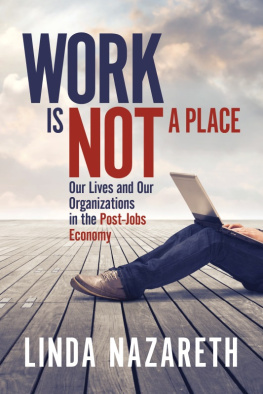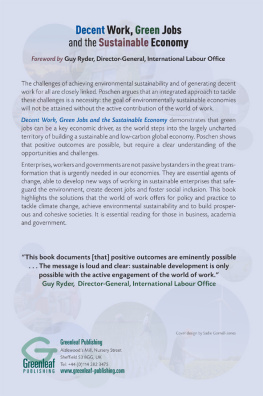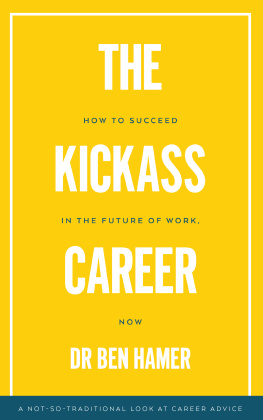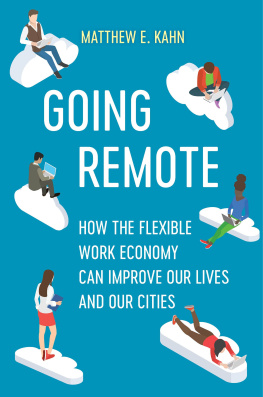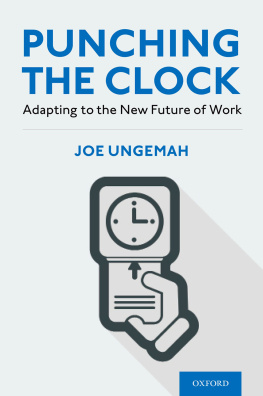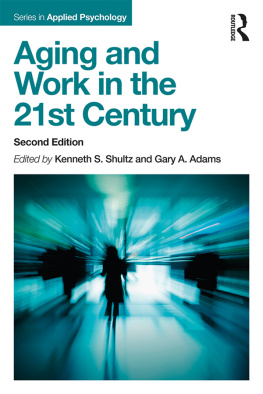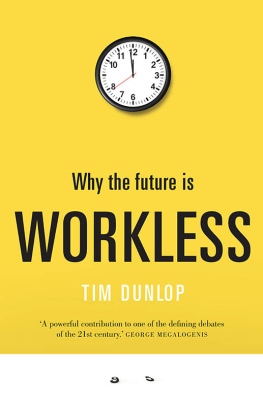Copyright 2018 by Linda Nazareth
All rights reserved. The scanning, uploading and distribution of this book without permission is a theft of the authors intellectual property. If you would like permission to use material from the book (other than for review purposes) please contact .
First edition November 2018
Book and Cover Design by Jana Rade, impact studios
ISBN: 978-0-9936510-2-1 (Book)
ISBN: 978-0-9936510-3-8 (Ebook)
Published by Relentless Press
www.relentlesseconomics.com
If you are interested in having Linda Nazareth be a keynote speaker at your event, please contact
For Maddie.
CONTENTS
Chapter 8: The Government Ought to Do Something
(But What, Exactly?)
INTRODUCTION
EVERYTHING IS ON THE TABLE
Sometimes it all comes together. Sometimes it makes perfect sense for workers to be employed and for companies to employ them. Sometimes a company manages to inspire people, and they give their best back, and in return, the product ends up being more than the sum of the parts. These were some of my thoughts as I took the stage as the host of an employee-engagement event put on by a major financial institution.
The venue, a trendy gallery space in a gentrifying part of Toronto, was lovely. Rain pelted outside, but none of the busload of specially chosen employees seemed to care. The chair of the organization was retiring within months, a successor had been chosen, and this event was an opportunity to say goodbye and hello and to hear both mens thoughts on the companys future. More important, it was a chance for the employees to share their viewsstarting with the discussion in the room, but continuing as the dialogue moved online and others chimed in.
More often than not, I am a keynote speaker, so the opportunity to host was an interesting one for me. I had been asked to do so because of my insights into economics and the future of work (as opposed to my television work, which often leads to gigs of this sort). But this was not an occasion for me to share my views: rather, I was there to draw on what I knew in order to keep the conversation going, to ask pertinent questions and encourage people to give their opinions. I was perfectly honest when I opened by telling the audience that it was a privilege to be in the room with them. They were on the front lines of the ways in which trends and technology are reshaping the economy, and I appreciated the chance to hear about their experiences.
What struck me about this particular group was quite simply how happy they seemed. Happy, enthusiastic, engaged, committed those were the words I would use to describe their mood that Friday afternoon. Of course, this was a preselected group, and there was a certain excitement in being out of the office and in a glamorous space alongside the companys elite. It was more than that, though. I have worked in places where the experience would have been radically different; if management needed to fill a room with happy workers, their best bet would have been to hire actors to impersonate them. This group was different, and the discussion reflected it. They shared stories; they asked about company direction; they laughed a great deal. They were upbeat and they acted like a team, and those are not easy things to fake. I could feel that they had made a commitment to the company and the company had done the same to them, and that those commitments were paying dividends. As company structures go, it was pretty traditionalthe same model, essentially, as had existed for decades. For these folk, it was working.
But for how long? Its possible that everyone in that room, from the highest level of C-Suite executives down to the newest interns, would be better off not getting too comfortable with that modelor any other, for that matter. The reality is that what works right now may not be what works tomorrow, or next year, or 10 years after that. Our current corporate and workforce model is changing quickly, and it is in the best interests of everyone involved to be prepared.
Companies, firms, corporationsa couple of centuries ago, almost no one worked at any of the above. These days, having a job and getting paid, maybe with some benefits, seems like a pretty fundamental thing, but it was not always thus. To be sure, people have always worked, but the model of the modern workplace where a large company employs lots of workersis a fairly recent phenomenon. It has been the norm for a couple of hundred years at most, an ideal prompted by some dramatic economic history. Now, more economic history is being made around us, and with it will come a new norm in terms of how we work.
SCARIER THAN FICTION
Lets not sugarcoat it: things are changing, and change is scary. Every day, we are bombarded with alarmist headlines: Really Smart Think Tank Has Determined that a Robot Can Do Your Job Really Soon and Way Better; Six Guys in Silicon Valley Are Becoming Mega-Billionaires and Everyone Else Is Getting Poorer; In the Future, Your Kids Will Not Be Able to Find Employment and Will Live with You Forever. The concept of going to work is changing; the concept of having a job is changing; the concept of picking a career and working at it for the bulk of a lifetime is changing too. Its unsettling, to say the least. Looking at the next 10, 20, or 50 years, its fair to say that everything is on the table in terms of what we have come to associate with the norms of work.
Its also hard to discern truth from fiction, to sort out the different narratives regarding how the labor market is evolving. The robots-are-coming stories are catchy, to be sure, and they crop up with alarming regularity, but the not-enough-workers stories can give them a run for their money. We hear of brutal talent wars in Silicon Valley that lead to software engineers being paid like rock stars. We hear of convicts being released from prisons in Idaho to do farm work that no one else can or wants to do. In both the United States and Canada, the unemployment rate is hovering at levels not seen since the 1960s, thanks to strong economies and a demographically induced shortage of workers. Thirty or 40 years ago, it seems, people forgot to have kids, and now we cant fill positions. We need to sort out which narrative is going to rule, and whether different ones will be dominant for different groups of people.
Why do we need to do this? Because the future of work matters a lot, and not just to workers. In a way, the labor marketor work, when you get right down to itis a synonym for the economy. Up until now, the two have basically functioned simultaneously. That might be changing a bit (well explore that later), but its a truism weve come to accept. Like it or not, we have created a work-to-live economy, where the majority of households rely, to a greater or lesser degree, on what they earn in the market economy to power their consumption. You work, you earn money, and you use that money to pay for food and housing and whatever else you want to buy. You might skip that process if you have a trust fund from Grandpa or are unable to work, but those are the exceptions rather than the rule. And if we are going to change the rules on what work is, we have to realize that were changing many other things along with it.
Work matters for other reasons as well. For some of us, what we do is at the center of our identity, of who we are. There may be a generational component to that, and perhaps a gender bias too. Ironically, this is true despite the fact that a lot of people claim to hate their job. According to a 2017 Gallup survey, only 30 percent of U.S. employees (and only 15 percent of those in the world) are engaged at work (basically defined as enthusiastic about and committed to their jobs). But engaged or not, work is what we expect of ourselves, and of each other. In North America in particular, there is a deep distrust of not working. Outside of youth and the retired, the only groups that seem to legitimately be allowed out of the labor force are full-time students and stay-at-home parents (and the latter is, in fact, a source of great controversy, as evidenced by the Mommy Wars between working and stay-at-home mothers that has been highlighted in the media in recent years).

